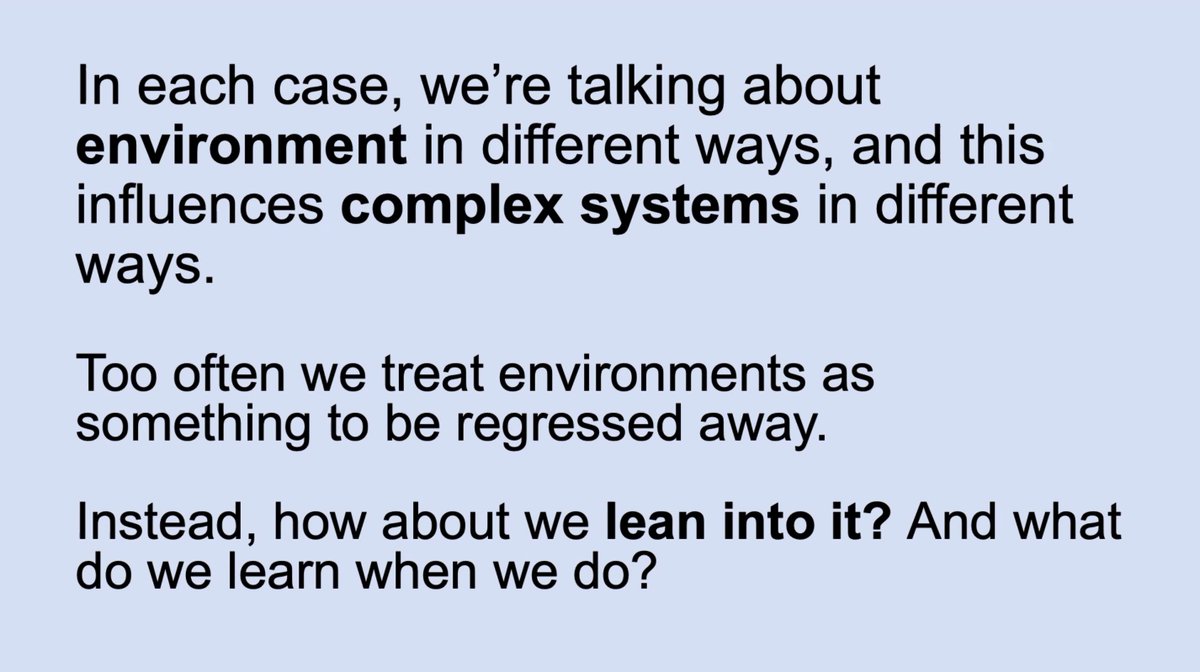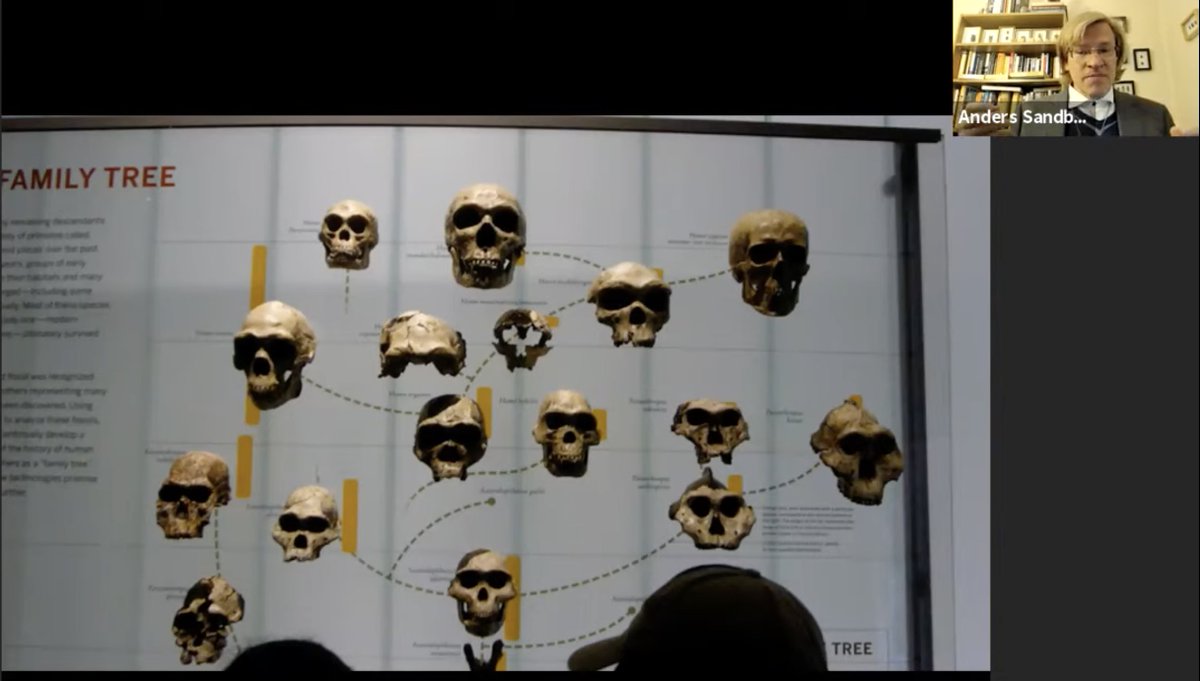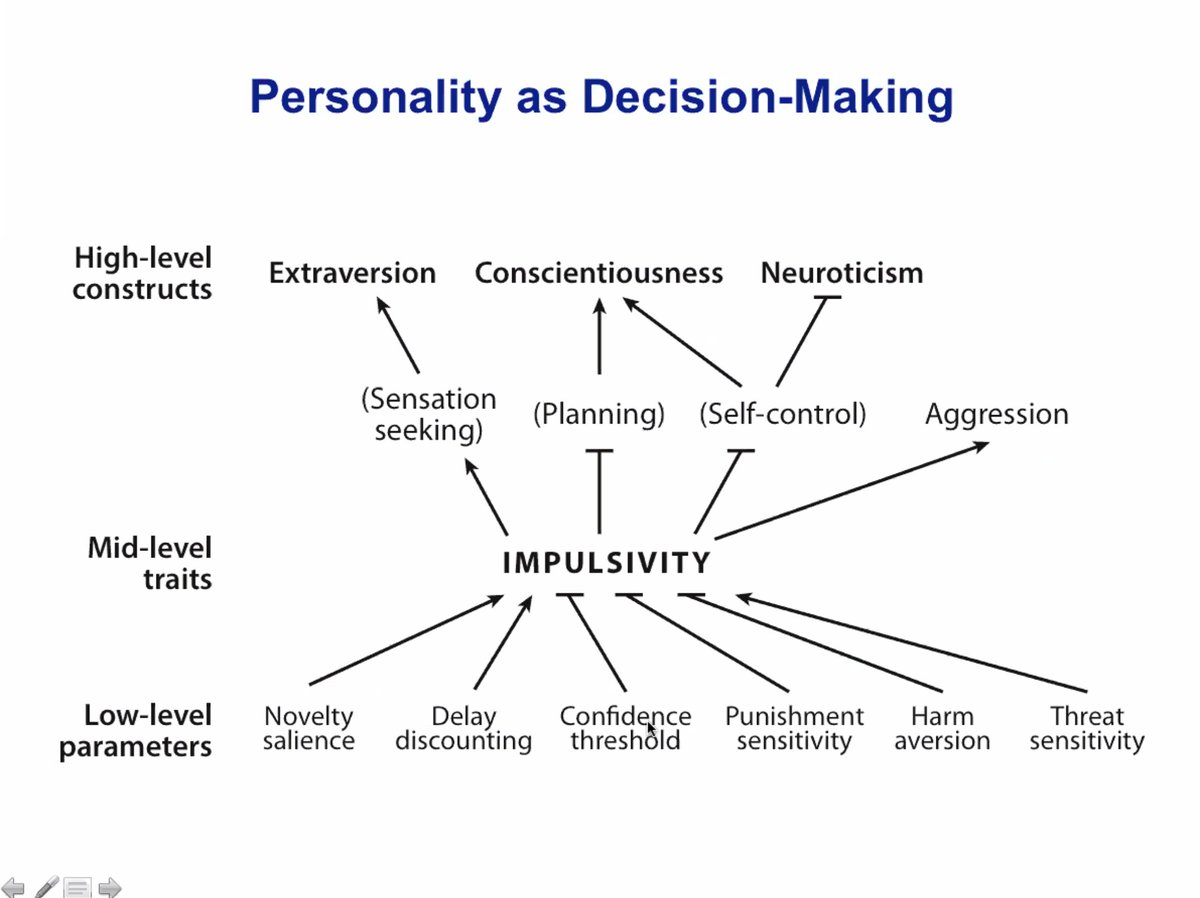
"If we just want to make forecasts, learning the mechanisms may not matter."
- @svscarpino (SFI, @RockefellerFdn)


- @svscarpino (SFI, @RockefellerFdn)



"All the way back to Farr, he's telling us that the curves aren't symmetric. We keep using models that we KNOW are wrong."
- @svscarpino (SFI, @RockefellerFdn)




- @svscarpino (SFI, @RockefellerFdn)
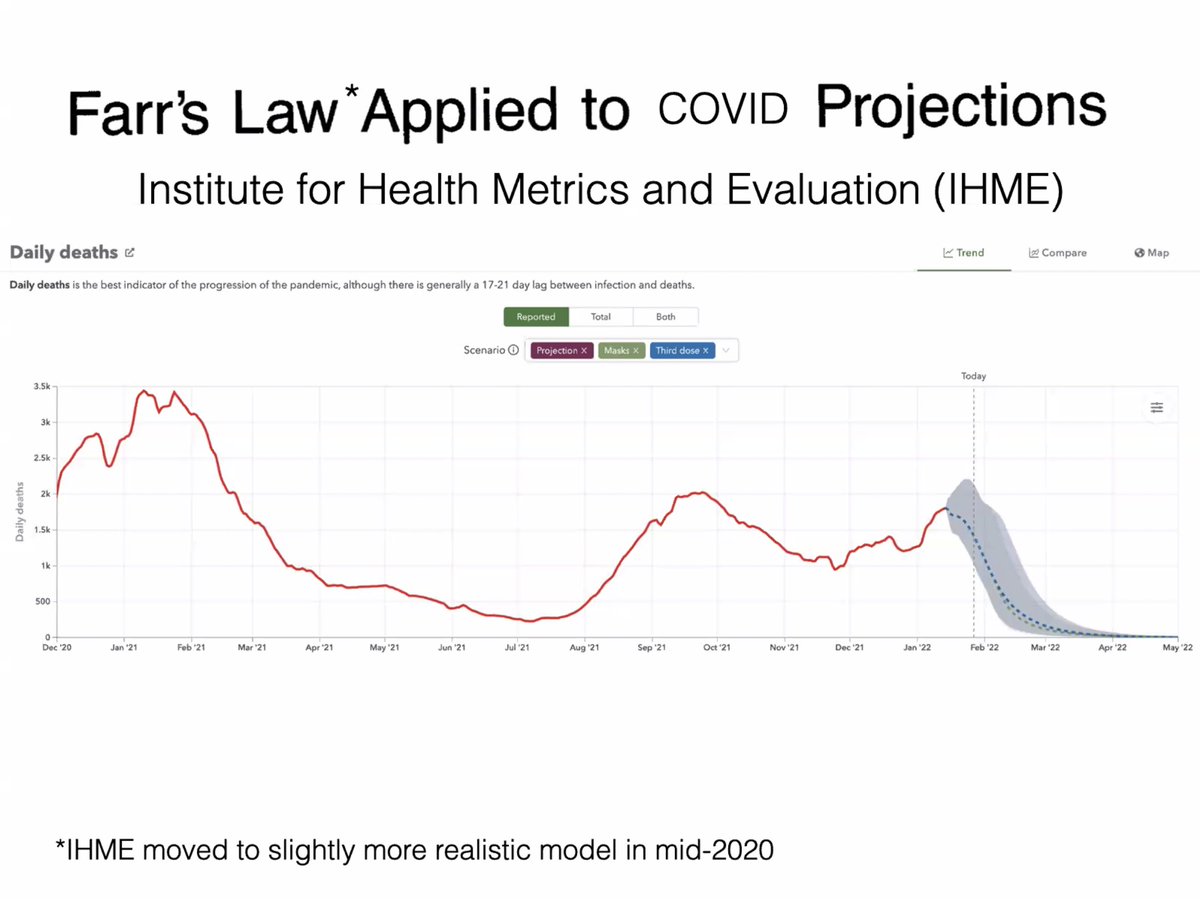



"All models of interacting contagions can be mapped onto a complex contagion model."
- @svscarpino (SFI, @RockefellerFdn)
speaking at SFI now:




- @svscarpino (SFI, @RockefellerFdn)
speaking at SFI now:



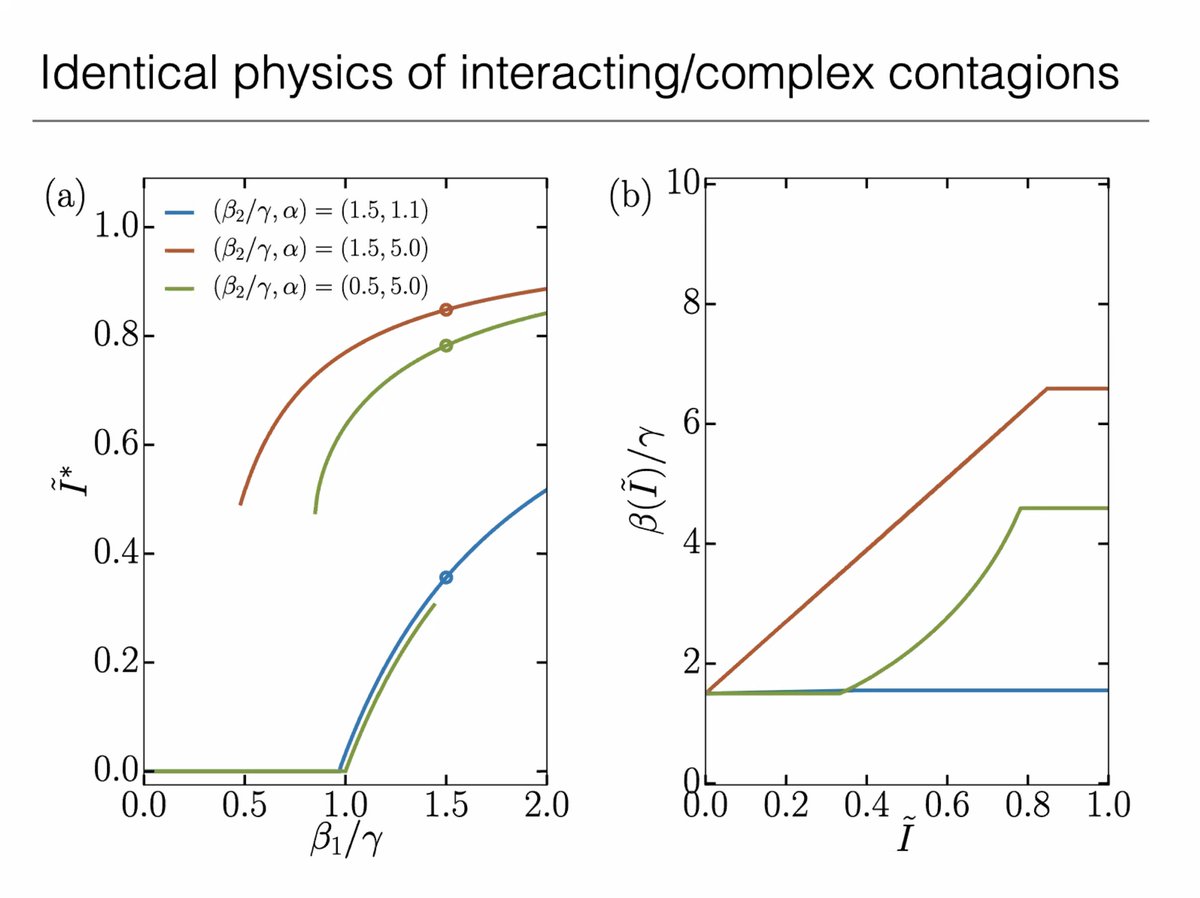
"I have yet to find an infectious disease paper which claims it's a complex contagion..."
- @svscarpino (SFI, @RockefellerFdn) speaking at SFI now:


- @svscarpino (SFI, @RockefellerFdn) speaking at SFI now:
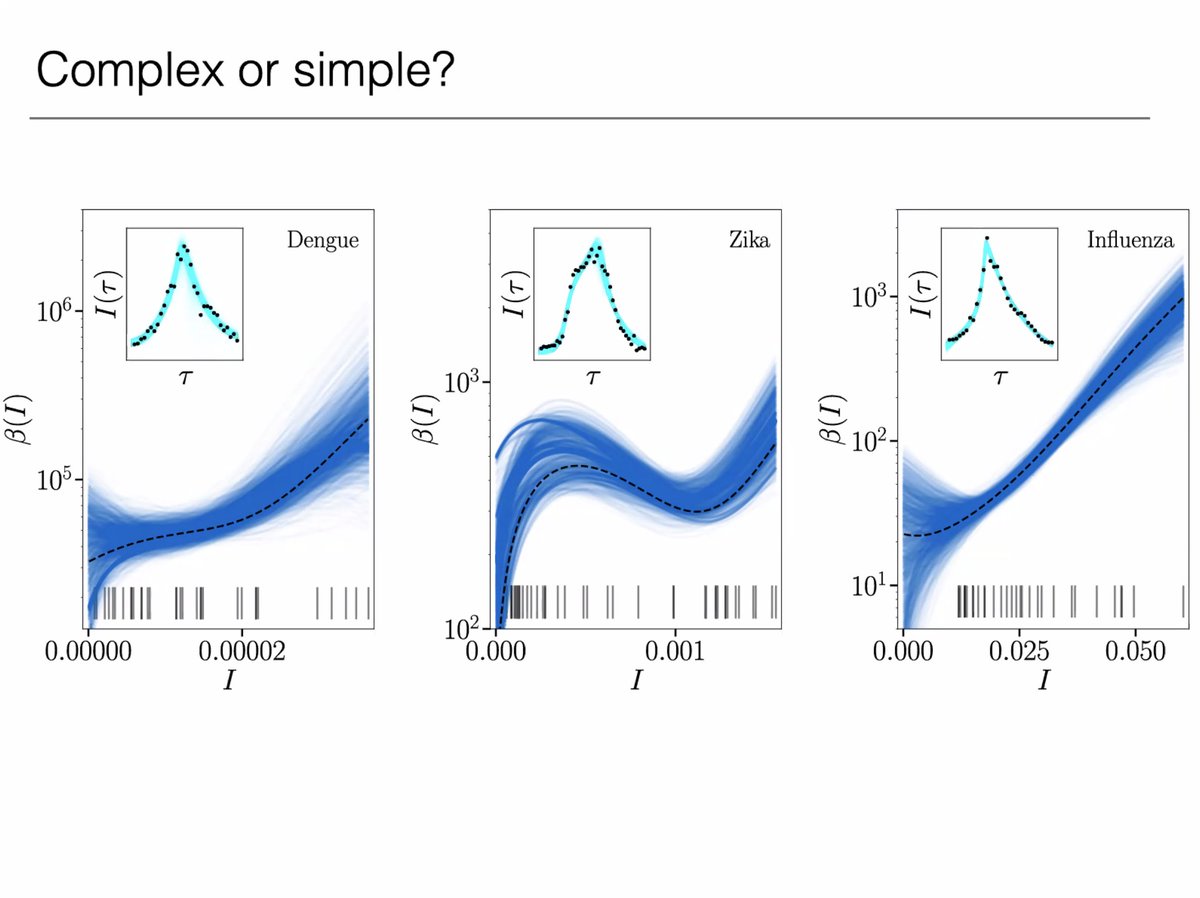

"We think if you only have one time series, you have to wait until it comes down to tell the difference between different models..."
- @svscarpino (SFI, @RockefellerFdn) speaking at SFI now on the difference between prediction and understanding:

- @svscarpino (SFI, @RockefellerFdn) speaking at SFI now on the difference between prediction and understanding:

"As soon as we have enough data to learn the model, it's old news."
"Herd immunity threshold is a fantasy [and] endemicity relies on the herd immunity threshold, so it's every bit as much of a fantasy."
- @svscarpino (SFI, @RockefellerFdn) at SFI now:



"Herd immunity threshold is a fantasy [and] endemicity relies on the herd immunity threshold, so it's every bit as much of a fantasy."
- @svscarpino (SFI, @RockefellerFdn) at SFI now:



"The degree of hierarchy within the city will determine how long the epidemic will persist. This leads to how to prepare for something like this...in some regimes lockdowns help and in others they make things worse."
- @svscarpino (SFI, @RockefellerFdn):


- @svscarpino (SFI, @RockefellerFdn):


• • •
Missing some Tweet in this thread? You can try to
force a refresh








